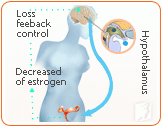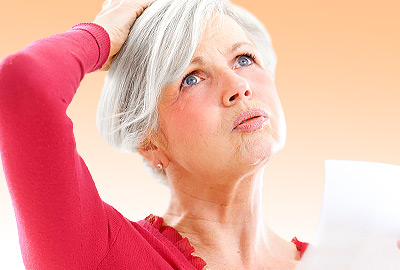Hot flashes are a very common symptom of menopause and about 70% of women experience them at some point in time. Menopausal hot flashes vary in duration, frequency, and severity. They usually begin one or two years before a woman's last period and can last anywhere from six months to fifteen years.

Menopausal hot flashes can be unbearable at times and may often require treatment. Fortunately, some women have been able to manage their hot flashes through a variety of treatments and remedies. Keep reading to find out more about menopausal hot flashes and how to treat them.
What Are Menopausal Hot Flashes?
Common symptoms of hot flashes in women include:
- A feeling of intense heat in the upper body
- Reddening of the skin (flushing)
- Sudden, rapid heart rate
- Profuse sweating
- Chills and shivering
Hormonal fluctuations are responsible for triggering hot flashes during menopause. Typically, menopausal hot flashes start with a feeling of intense heat in the upper part of the body, particularly the head, neck, and chest and are usually accompanied by an increased heart rate. Hot flash symptoms may also include heavy sweating.
Although every woman's experience of menopausal hot flashes is different, one episode typically lasts between thirty seconds and 5 minutes.
If you think you are experiencing menopause hot flashes and have concerns, consult your doctor. Depending on your age, menstrual history, and general health a doctor should be able to identify whether or not your hot flashes are a part of menopause or are caused by another health condition.
What Causes Hot Flashes?

The exact science behind hot flashes during menopause has yet to be determined, but it is widely believed that the hypothalamus (part of the brain that regulates body temperature) falsely thinks the body is overheated. As a result, chemicals are released to dilate the blood vessels near the skin's surface to cool the body down. Research has shown that decreased levels of estrogen during menopause are responsible for the malfunction of the hypothalamus.
Tips for Dealing with Hot Flashes

- Dress appropriately - Wear layers to accommodate changing temperatures
- Eat a well-balanced diet - Full of protein, fiber, fruits, vegetables, and grains
- Drink plenty of water
- Avoid triggers - spicy foods, alcohol, caffeine, sugar, hot foods, and beverages
- Keep your bedroom cool
- Exercise regularly
- Stop smoking
- Maintain a healthy weight
- Use herbal remedies
Making small changes to your lifestyle should always be the first step you take when trying to combat hot flashes. Lifestyle adjustments are non-invasive, pose the least health risk, and are cost-effective. If you are considering trying alternative treatments for hot flashes, you should talk to your doctor for advice.
Sources
- "Hot flashes ... in January". Canadian Medical Association Journal. 2004: 170 (1).
- Miller, Heather and Rose Maria Li, M.D. "Measuring Hot Flashes: Summary of a National Institutes of Health Workshop". Conference report. Mayo Clinic. June 2004: 79.
- Sikon, Andrea and Holly Thacker M.D. "Treatment for Menopausal Hot Flashes". Cleveland Clinic Journal of Medicine. July 2004: 71 (7).


